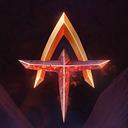Gameplay Interface and Mechanics Part 2
This week we wanted to talk more about the turn structure in Aegir Tactics and take a closer look at the unit interface. We have received many questions on this topic, particularly asking whether our turns will be “interactive”. Before getting into our mechanics, let’s go over what turn structure’s look like in the biggest card games.
Hearthstone (Non-Interactive Turns)
In Hearthstone, players take their turn before pressing the end turn button once they run out of or choose not to perform any more actions. During an opponent’s turn, there is no opportunity to interact until their turn ends. This simple turn structure greatly simplifies gameplay and is considered a major reason for Hearthstone’s huge success with mainstream audiences.
Magic: The Gathering (Interactive Turns)
In contrast to Hearthstone, MTG has a very complicated turn system. A complex series of phases and loops, it is not uncommon for players with 10+ years of experience to learn something new while poring through the rules. Unlike Hearthstone, each player has ample opportunity to play cards during their opponents turn. This adds an extra layer of decision making but can also add a lot of downtime to a game, as most actions must be run by your opponent to see if they choose to react.
Aegir Tactics
In Aegir Tactics, we have implemented a non-interactive turn system. In our mission to create a next-gen card game, user accessibility is a top priority. We want to ensure that our gameplay is easy to understand for both new users and experienced players and a simplified turn structure is key.
Some argue that interactive turns lead to additional decision making but this is often not the case. It is common for situations to arise where players won’t take any actions to avoid giving their opponent the chance to counteract. This can lead to very slow matches in which players are eager to wait for their opponent to make the first move.
Another downside of interactive turns is that it becomes very difficult to win matches from a disadvantage. Allowing players to counteract their opponents actions heavily favors the player with an early lead due to better card draws, the chance to go first, or other factors. This is referred to as “snowballing” in competitive gaming and can cause matches to be overly predictable and uninteresting past the early turns.
Turn Length and Overtime
We intend for matches in Aegir Tactics to be fairly consistent in duration. We want to avoid situations where a game drags on too long due to slow gameplay, players taking too long to make decisions, or intentional griefing. We are implementing a common solution in modern digital card games, where players are rewarded with overtime for taking their turns promptly. This ensures that players have additional time when they need it without increasing total match duration.
Additional info: Card Rarity
We received several questions about card rarity and wanted to share some of our thoughts. Card rarity is more significant in Aegir Tactics than in other card games. In games like Hearthstone, Magic: The Gathering, and Legends of Runeterra, most card rarities don’t have an impact on gameplay and only indicate that a card is more difficult to find and therefore more expensive. With the legend system in Aegir Tactics, card rarity indicates how many of each card are present in a deck. This is intended to allow players to rely more on probability when trying to figure out what their opponent has in hand. A card with one copy is much less likely to be in their hand than one with three copies in deck. Card rarity will also determine how likely a premium version of each card can be found in the vault system as well as their earning potential in Aegir Tactic’s tokenomics. We look forward to sharing more details about the tokenomics in a future update. In the meantime, if you have any questions don’t hesitate to reach out on Discord or Twitter.
Aegir Tactics is a next-gen collectible card game under development which utilizes Algorand to enhance digital collectibles and decentralize competition.
